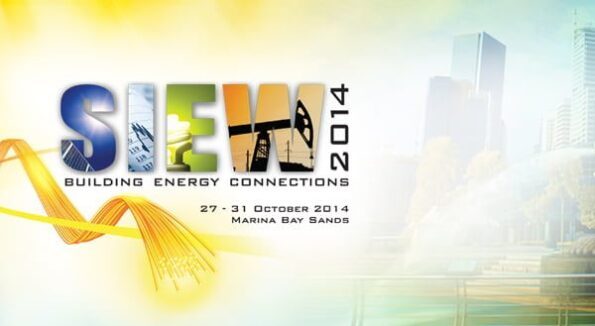Peter Clarke is Vice President, Power, Asia Pacific & Africa, at ExxonMobil Gas & Power Marketing Company. In this role, he is responsible for flowing gas and gas commercialization efforts across the Asia Pacific and Africa regions, as well as ExxonMobil’s global power portfolio comprising over 5 GW of cogeneration capacity. Peter is also a board member of the US-ASEAN Business Council.
Prior to this role, Peter served as the planning manager for ExxonMobil Gas & Power Marketing Company, responsible for global strategy, planning and business analysis. He previously served as director of ExxonMobil Gas Marketing Europe Limited, located in Leatherhead, UK.
About Peter Clarke
Q1: With the rising demand for energy in Asia-Pacific, how can countries balance between energy security, environmental sustainability and economic competitiveness?
We believe that meeting the challenge of growing our economies while managing emissions is indeed achievable, but in order to do so, countries must embrace markets, encourage greater interconnections and trade between nations, and resist the temptation to mandate energy solutions.
We forecast that we will need all sources of energy to meet the growing demand for energy, which is expected to increase by about one-third globally between now and 2040. However, the abundant supply of natural gas and LNG offers a significant opportunity to help balance growth and environmental aspirations, while also increasing energy security.
By roughly 2025, natural gas is expected to overtake coal as the second-largest energy source, behind only oil. And as gas displaces coal in power generation, we see the potential for emissions reductions, given that natural gas is a cleaner burning fuel source that emits up to 60 percent less carbon dioxide than coal. Finally, given this abundance of natural gas and LNG, nations have access to new and more diverse channels of supply, which bring with it, enhanced energy security.
Q2. What energy or natural gas opportunities does the company see in Asia-Pacific?
The economies of Asia are well positioned to benefit from increased trade in natural gas – and new supplies from around the world. We see LNG demand in Asia Pacific nearly doubling between today and 2025. We also expect domestic Asia Pacific gas production and pipeline imports to grow, but at a rate that only meets 60 percent of demand by 2025. LNG will be needed to meet the remaining demand.
This growth will require significant additional new LNG supplies. Currently, there are about 80 million tons per annum (MTA) of new LNG capacity that is under construction. But growing global demand and expected declining output from existing LNG facilities will necessitate the need for even more capacity from future projects – about 55 MTA by 2020 and about 250 MTA by 2030.
This demand represents significant business opportunities for many natural gas producers around the world, including ExxonMobil. We have partnered with many resource owners across Asia-Pacific and around the world to help develop and deliver world-class energy projects. Presently, we are working with host governments and partners to develop new gas and LNG opportunities in places like Australia, Vietnam, Indonesia and Singapore to deliver cargoes to destinations like Japan, China and Korea.
Q3. The use of hydraulic fracturing (“fracking”) to mine gas resources has raised environmental concerns. How can these concerns and risks be better managed?
The safety and environmental challenges posed by unconventional gas development and hydraulic fracturing are the same ones our industry has been managing successfully for more than 100 years in the development of conventional oil and natural gas. The process actually dates back to the 1940s, and the industry has been hydraulically fracturing wells in large quantities since the 1960s. This has been done without a significant environmental incident, which demonstrates that the challenges are manageable. Given this, it is important that countries capture the significant economic and environmental benefits from gas development – benefits that accrue not only to producing countries but to global destination markets where these new supplies are underpinning economic growth and enhancing both energy security and environmental performance.
Q4. The ASEAN Power Grid (APG) and Trans-ASEAN Gas Pipeline (TAGP) projects aim to link the gas and power networks of the 10 ASEAN member states by 2020. What opportunities and challenges does this present for ExxonMobil?
While ExxonMobil is not a participant in either of these projects, we are supportive of any project that can expand interconnectivity, increase diversity of supply and contribute to economic growth by developing a region’s infrastructure.
That said, there are several logistical and political issues that need to be overcome. In particular, there is a need for the ASEAN member states to seek alignment on their regulatory, legal and pricing frameworks, as well as the technical standards that impact the interconnection of national systems. As such, cooperation between governments is key to the success of APG and TAGP.
Q5. The theme for Singapore International Energy Week this year is “Building Energy Connections”. How essential is collaboration between countries, organisations or both to address energy issues?
Free and open trade between nations has marked the progress of mankind. In recent times, natural gas is a great example of how new energy connections have promoted growth. The growth in natural gas and LNG trade demonstrates the importance of building energy connections between countries. Over the past two decades, strong, international partnerships, like that which have been formed with Qatar, have helped to develop and make available new supplies of liquefied natural gas. Ongoing supply from Qatar will continue to facilitate growth and trade. And likewise new LNG production from places like Australia, Papua New Guinea and the U.S., can create new trading relationships. The increasing role and trade in natural gas has and is bringing new flexibility and enhanced energy security and prosperity to Asia and the rest of the world.










